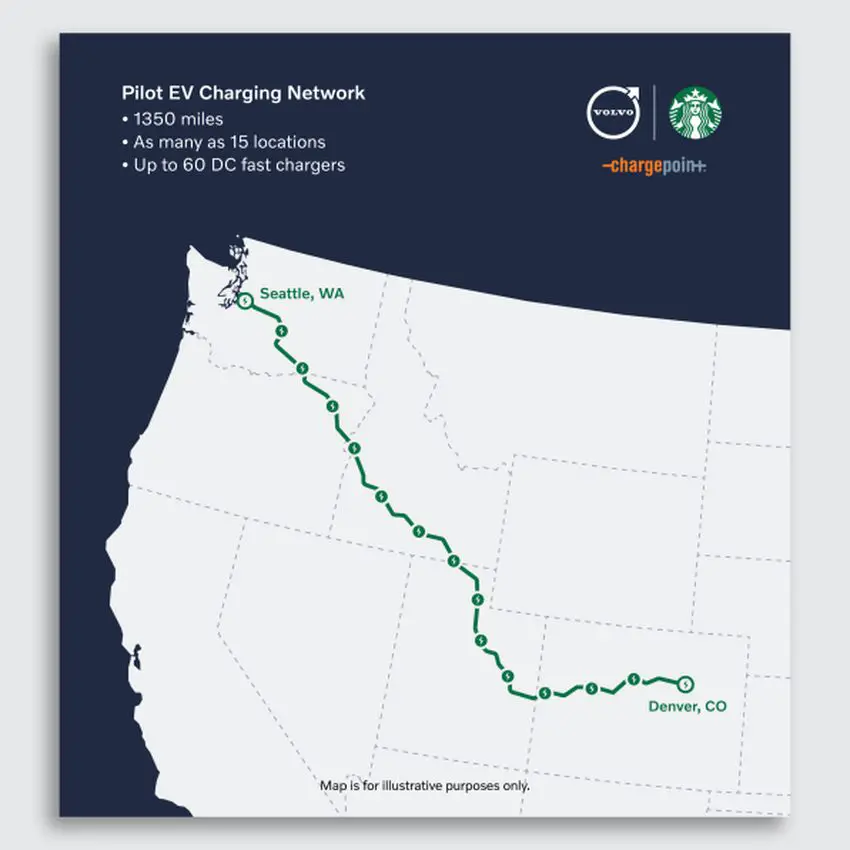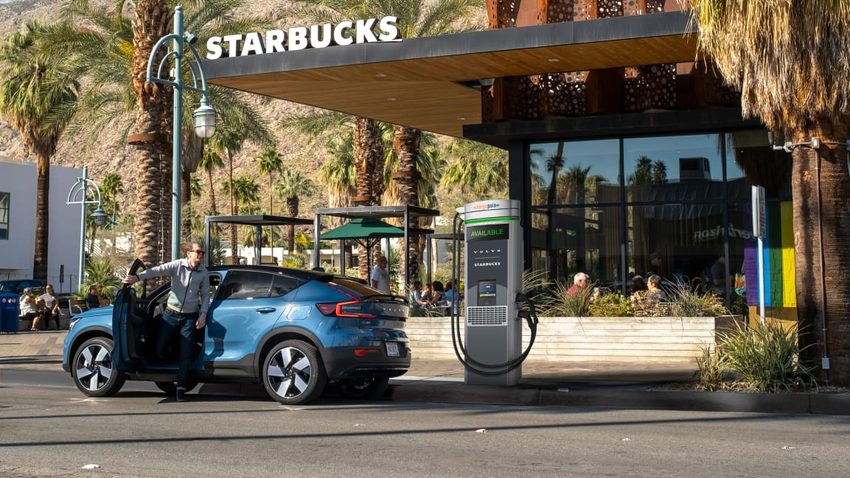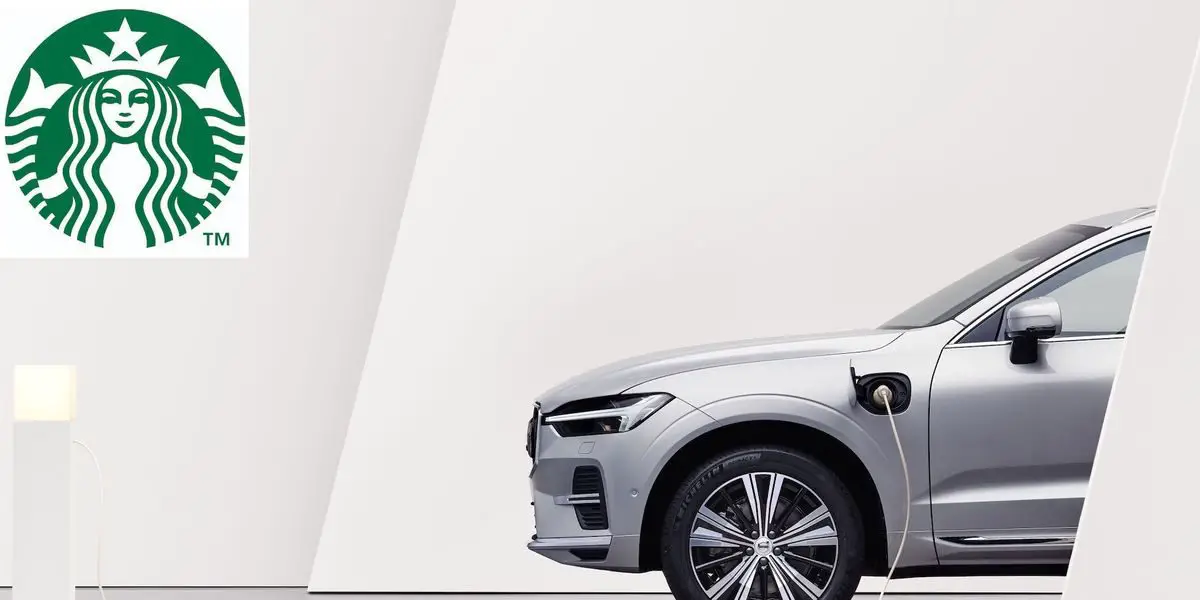There may be 26 million electric vehicles on the road by 2030, implying that we’ll need over 10 times as many EV charging stations. Starbucks, with its 15,000 locations across the USA, believes it can help to fill some of the voids.
The firm is beginning a yearlong trial with Volvo and Chargepoint to put EV chargers in its parking lots along a 1,350-mile route from Denver to Seattle, with stops every 100 miles or so.
“It’s one of those charging deserts, so to speak. There aren’t too many charging stations available there.”
-Michael Kobori, chief sustainability officer at Starbucks

Still, when you charge an electric vehicle, it’s not like filling up a gas car. EV owners frequently plug in at home for everyday use, but on a longer journey, chargers might be hard to come by. The procedure also takes longer than conventional fuel filling, and waiting at a gasoline station for 30 minutes or more isn’t always appealing.
“This is pairing the idea of electric vehicle charging with the fact that, hey, if you’re on a trip, you’re gonna stop in in the morning anyway to get your Starbucks, to get your beverage, to get your breakfast. And as you’re sitting there, getting ready for the day and planning out your route and checking out, your car is just charging.”
-Kobori
According to Volvo, the charging times for its electric cars range from a 20% charge to a 90% charge in 40 minutes.

Ford EV investment in Europe getting bigger
Starbucks is interested in the EV sector
Starbucks will connect the new charging equipment to local utilities, and Chargemaster and Volvo will install it at retail locations in towns like Twin Falls, Idaho, and Uintah, Utah. The chargers will also help fill a need for locals rather than tourists in many areas.
“This route goes through several of what are literally federal opportunity zones, economically distressed communities. And so we were also thinking as we looked at this, how do we make sure to bring the charging to those underserved markets so that will open them up as well to electric vehicles.”
-Kobori
Starbucks will use the data in the trial to determine whether it should expand the service nationally as part of its larger sustainability plan, which aims to make the company “resource positive,” including a carbon-capture target.





